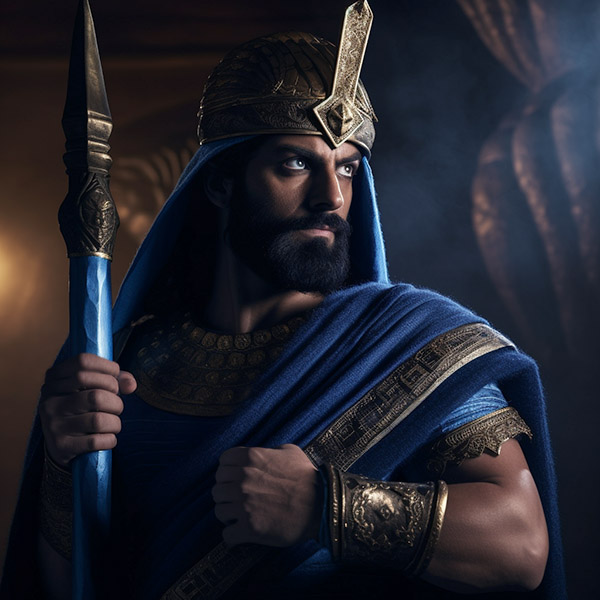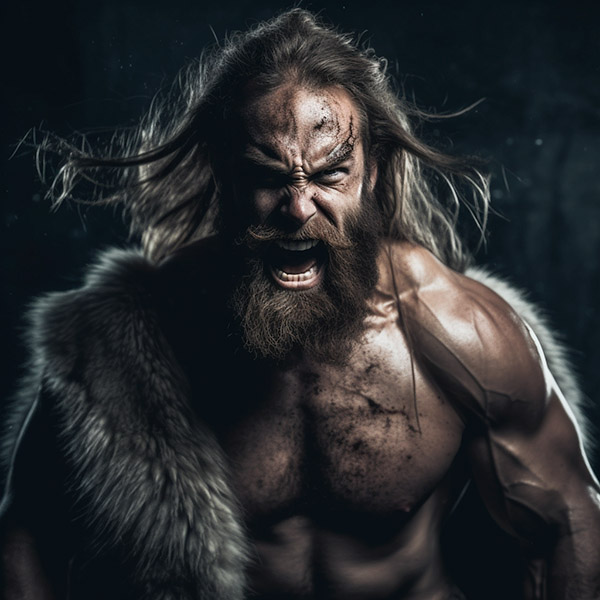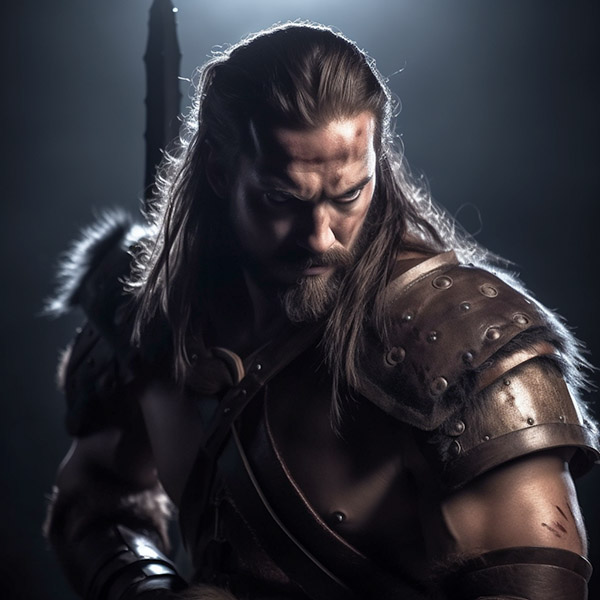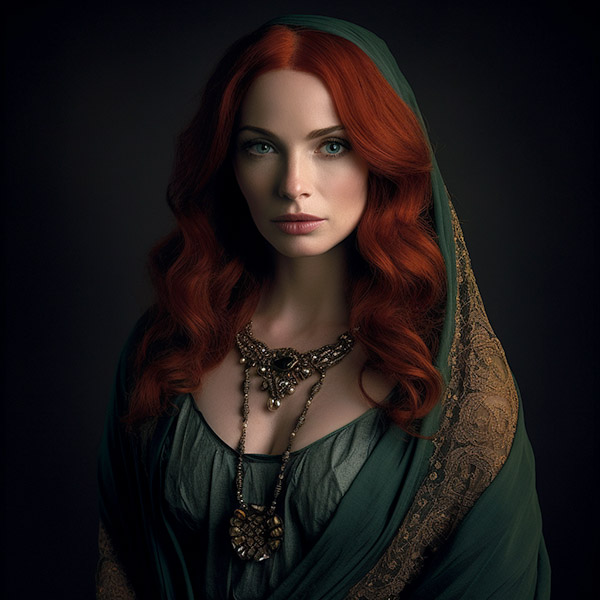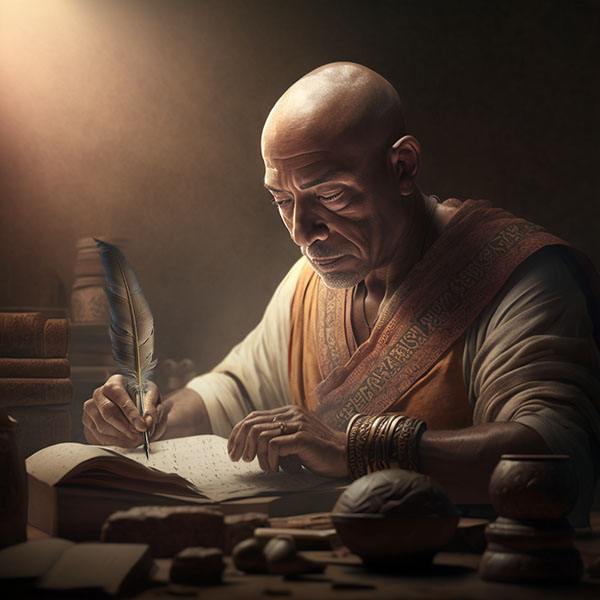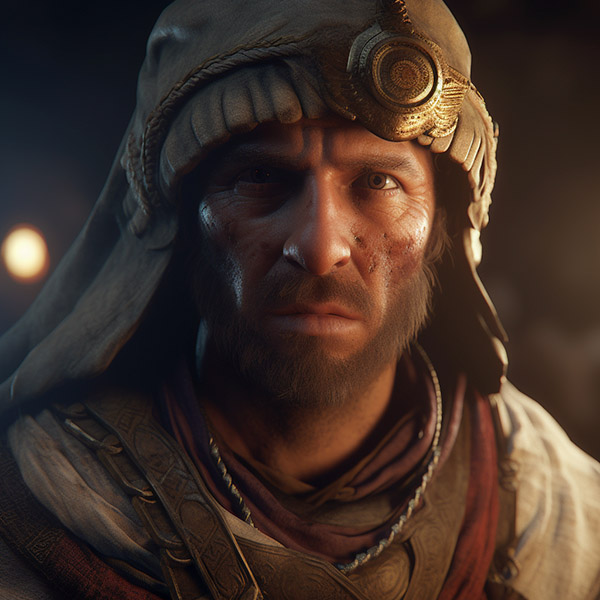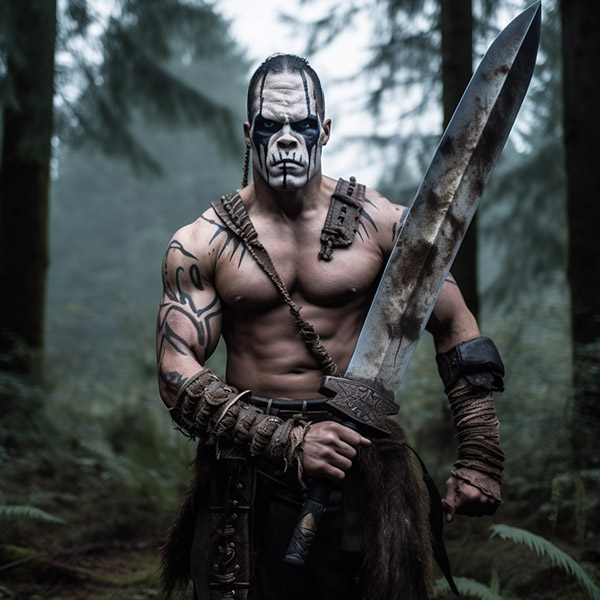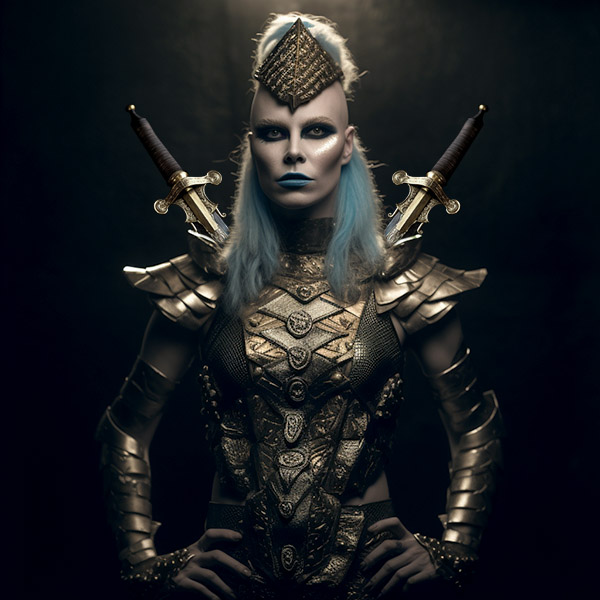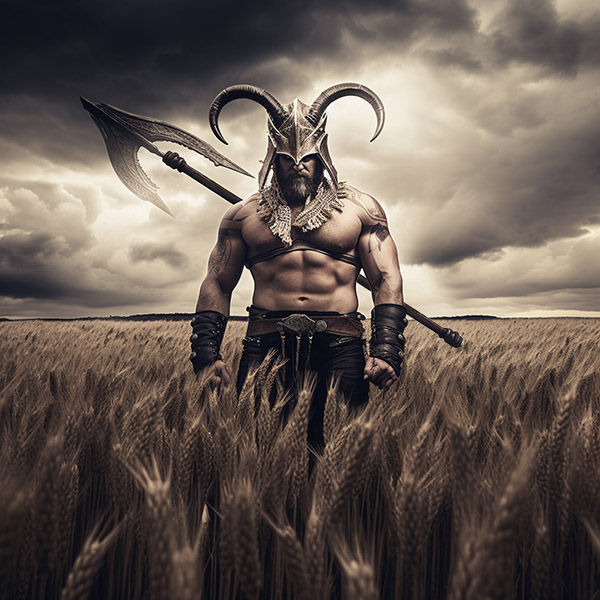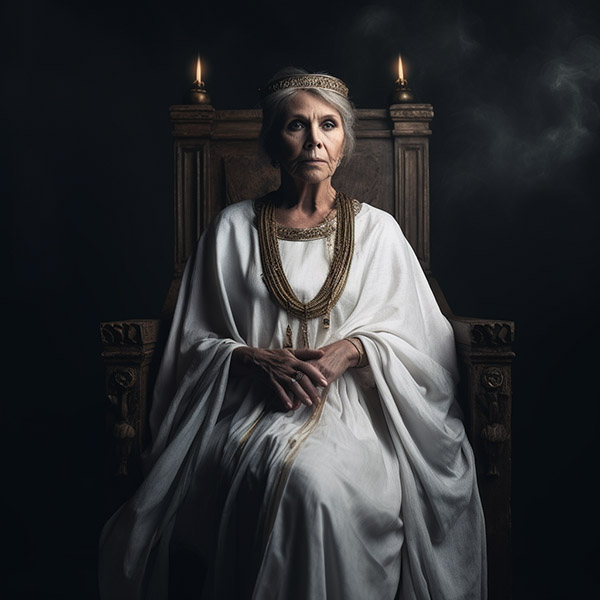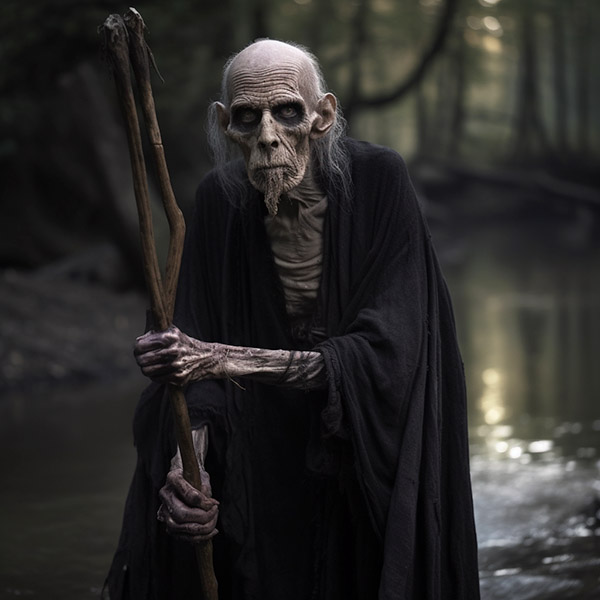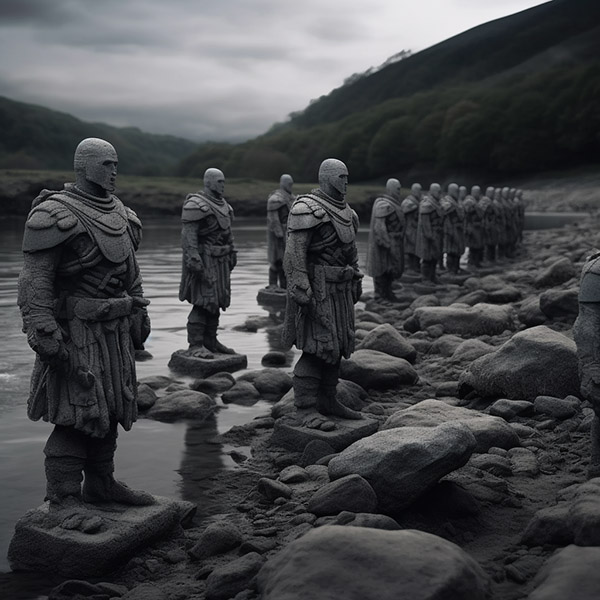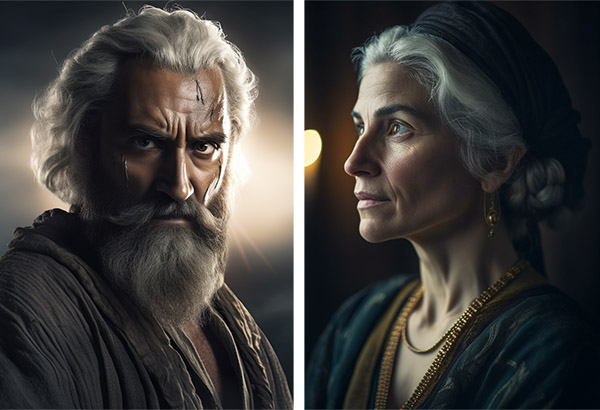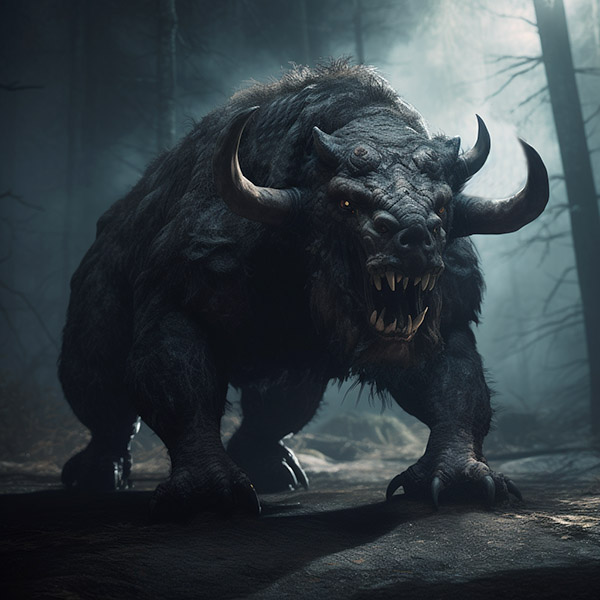The epic action adventure journey of the great Mesopotamian King Gilgamesh who sought eternal life after Noah’s Flood. He has more connection to the Bible than you realize.
Character Images created by Cam Harless
© Copyright 2023 Warrior Poet Publishing.
Gilgamesh
The giant king of Uruk, referred to as “the Mighty Bull on the Rampage” and “the Scion of Uruk.” He is two-thirds god, one-third man and at nine feet tall, is a mighty warrior-king. No man is his equal in combat or in hunger for women. That is why he oppresses his people to satisfy his eternal longing for immortality. When he meets his equal in Enkidu, a mighty Wild-Born, he begins to see the value of moral character as it resides in his new Right Hand and best friend. He takes Enkidu with him on his quest for fame, glory, and ultimately eternal life, only to face the penultimate challenges of battling gods, monsters, death, the Underworld and the meaninglessness of life. What he finds will change the world forever.
Enkidu
Wild-Born of the Steppe. When he is discovered he is living as an animal among the wild with long hair all over his body and a fierce intent to stop hunters from capturing his animal brethren. When a hunter discovers him, he seduces him into human civilization with the wiles of a harlot. Enkidu discovers his human side of reason and embraces civilization, only to discover that King Gilgamesh is treating his city more barbarically than wild animals. Enkidu is an uncomplicated man of high moral character because of his lack of political guile. He challenges Gilgamesh to live a more upright life of honor, friendship, integrity, and loyalty. But he will soon face his own challenge of meaning and purpose in a godless world of death and despair.
Shamhat
Shamhat the harlot is a hierodule or sacred temple prostitute. She is taken on a hunter’s trip only to be offered as a means of seducing and taming the “Wild-Born” Enkidu. But when she does so, they fall in love and Enkidu’s pure unconditional love for her transforms her into a wife of high regard and station in Uruk. But will their love survive the long journeys away that her beloved Enkidu must take with the king in their fruitless quest for immortality?
Sinleqiunninni
Sinleqiunninni (“Sin-leek-ee-ooh-nee-nee”) is based on the historical Babylonian scribe who wrote the Epic of Gilgamesh. In our story, he becomes the voice of wisdom to Gilgamesh. But unfortunately, Gilgamesh does not often listen to the voice of wisdom or conscience.
Dumuzi
A humble Shepherd warrior who vows revenge on Gilgamesh for the king’s violation of Dumuzi’s bride on his wedding night. But when events turn and Dumuzi saves the king’s life, he is awarded to watch the city of Uruk when Gilgamesh goes on his quest to the Great Cedar Forest. Unfortunately for Dumuzi, Inanna is about to be resurrected from her grave in the earth as Ishtar and she wants Uruk for herself.
Humbaba
The mighty Guardian of the Great Cedar Forest in Lebanon that surrounds Mount Hermon, the cosmic mountain of the gods. He is a huge Rephaim giant, about twenty feet tall, twice the size of Gilgamesh. He lives in a mammoth cedar palace at the entranceway to the mountain of the gods and he does not like humans trespassing in his territory. So when Gilgamesh and his group of warriors show up trying to cut down Humbaba’s precious living cedars, he becomes the fierce and brutal warrior that earned him the name, “Humbaba the Terrible.” And he has a secret that could shatter Gilgamesh’s relationship with his trusted Right Hand, Enkidu of the Steppe.
Ishtar
The goddess of sex and war, and patron deity of Uruk. She is volatile, sexually insatiable, and diabolically cunning. She has been rejected by the assembly of the gods, so she throws a wrench in their machinations with her own plans of subterfuge. And the heart of those plans is to seduce Gilgamesh into her cobra’s den, not merely with the fulfillment of his every depraved desire, but with power beyond his comprehension. There is only one problem that stands in her way, the god Ninurta who has become the personal guardian of Gilgamesh and probably the only one powerful and skilled enough to equal Inanna’s proven superiority in battle. And their tension is rising to lead to an inevitable climactic showdown.
Ninurta
The hunter god of vegetation and of storm. Ninurta is a huge muscular god who has been commissioned to watch over Gilgamesh for the sake of the plans of the gods for him. Ninurta is the opposite of Ishtar. He is quiet, reserved, and stays in the shadows out of sight. He is an impediment to Ishtar’s plans of controlling Gilgamesh and understands her cunning mind too well to be outwitted by her. He is the only god who can equal Ishtar’s fighting skill and power, and that rivalry is building up, ready to explode in a fury of carnage.
Ninsun
Goddess mother of Gilgamesh, who resides in the temple complex as a high priestess of Shamash the sun god. She is known as “Lady Wild Cow” of Uruk. She has devoted her life to the glory of her son and will do anything to make sure that he achieves his due greatness. She also holds the secret that could destroy Gilgamesh and his quest for immortality. And when Ishtar discovers Ninsun’s secret, she sets on a ruthless course to expose Ninsun and ruin Gilgamesh. Ishtar will then execute Ninsun when she is done with her. But Ninurta is ordered by Gilgamesh to watch over Ninsun, which results in a hostile rivalry that could end up destroying everything Ninsun believes in.
Shiduri
The ale-wife of a tavern on the shores of the South Sea. She is a mysterious beautiful woman that Gilgamesh stumbles upon in his search for Noah the Faraway. She holds the secret of where to find him, but she’s also barred the doors to her tavern because she has seen Gilgamesh from afar and knows he’s trouble. She’s skilled enough with a bow to protect herself and is ready to unleash upon Gilgamesh at the right moment. Her problem is that she finds herself strangely attracted to the giant king’s charismatic presence.
Urshanabi & the Stone Ones
The boatman for Noah. He is a scrawny skeletal man with a little pot belly from drinking too much of Shiduri’s beer. He is an insufferable slave owner of the Stone Ones, huge oarsmen made of stone, but animated by magic spells. They are like big dumb mindless automatons upon whom he vents his misery to do his bidding. He is the only man who knows how to get to the mystical island of Dilmun, the Land of the Living, where Noah and his wife Emzara reside. Unfortunately, only he can navigate the perilous “Waters of Death” that surround the island and will kill any living man who touches a single drop of water.
Noah & Emzara
The hero of the novel, Noah Primeval, now over nine hundred years old. Noah and his wife begin this new story settling the land with their sons after the Flood. But a horrible atrocity happens to Emzara and they are forced to deal with their shame by leaving their area and going across the sea to a distant magical island, Dilmun, the Land of the Living. Gilgamesh learns that Noah and his wife are the only humans that the gods ever granted eternal life. So if he can only find Noah the Distant and Faraway, maybe he can divine Noah’s secret of immortality for his own benefit.
The Bull of Heaven (Behemoth)
Also called “The Wild Bull on the Rampage.” An unstoppable land chaos monster who taunts the city of Uruk. Can Gilgamesh kill this colossal beast before it breaks through the walls of Uruk and decimates the entire city and its people?







